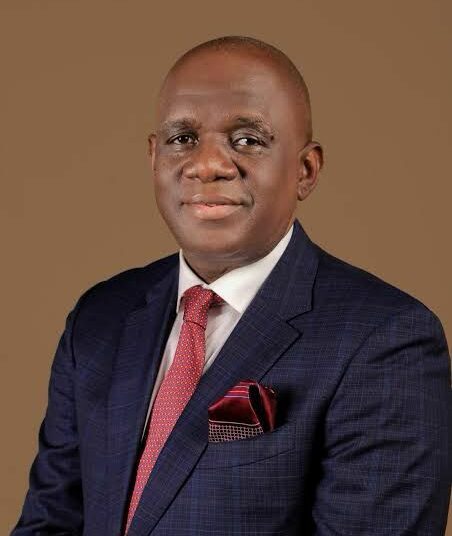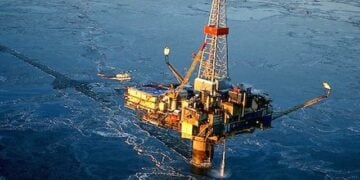The president of the Regional Maritime Development Bank (RMDB), Adeniran Aderogba, has urged African nations to confront the structural and financial barriers that continue to hinder the continent’s mining sector.
Speaking during a high-level panel discussion on “Mobilising Domestic Capital for Africa’s Mining Sector” at the African Development Bank (AfDB) Annual Meetings recently concluded in Abidjan, Côte d’Ivoire, Aderogba painted a sobering picture of a region brimming with mineral wealth yet stalled by systemic weaknesses that prevent meaningful development and value creation.
Aderogba highlighted four persistent constraints obstructing the sector’s growth: a crippling shortage of early-stage capital, the absence of quality geological data, weak development activity, and a chronic lack of integrated infrastructure.
These issues, he said, are not merely technical bottlenecks but foundational deficiencies that continue to blunt Africa’s competitiveness and discourage long-term investment.
“Africa’s mineral wealth is not in question — our challenge is transforming potential into productivity,” Aderogba said. “We are facing a systemic shortage of early-stage capital that discourages exploration, limits geological mapping, and stalls project preparation. Without addressing these constraints, the full value of our resources will remain trapped underground.”
He lamented that while financial institutions on the continent are increasingly interested in value-added ventures like processing and manufacturing, the upstream segment — where mining projects are initiated and developed — remains largely unfunded due to its perceived risk. Local financial institutions, he noted, are often reluctant to fund early-stage exploration because of uncertain returns and limited mechanisms to mitigate risk. He proposed that African governments and central banks adopt a more assertive role in shaping a viable investment environment, including deploying credit enhancement tools and fiscal incentives.
To bridge the financing gap, Aderogba outlined a strategic suite of financial innovations.
These include the introduction of mining bonds, mineral royalty securitization, and blended finance models that combine public and private funds to de-risk investments. He also emphasized the importance of public-private partnerships and the urgent need to strengthen project preparation capacity across the continent.
“Africa must not rely solely on foreign capital. We need to build a resilient domestic financial architecture that supports the full mining value chain — from exploration to beneficiation and beyond,” he said. “Finance ministries must provide fiscal incentives while central banks support investment-friendly monetary policies and guarantee frameworks.”
Aderogba’s remarks were especially timely given the global acceleration of the energy transition, which has catapulted demand for minerals such as copper, lithium, nickel, cobalt, graphite, and rare earth elements. He cited projections showing the global market value for these critical minerals is expected to more than double from US$325 billion in 2023 to US$770 billion by 2040, with copper leading the surge due to its indispensable role in electrification technologies.
Africa, he stressed, is central to this transition. The continent is home to two-thirds of global cobalt reserves, 30 percent of lithium, 20 percent of graphite, and over 30 per cent of manganese.
“This places Africa not at the periphery, but at the heart of the global energy transition,” Aderogba stated. He highlighted Guinea’s vast bauxite reserves, Gabon’s dominance in manganese production, and the Democratic Republic of Congo’s 70 per cent share of global cobalt supply as key pillars of this opportunity.
However, he warned that unless Africa shifts from being a raw material exporter to a hub of industrial transformation, it risks repeating the historical pattern of resource dependency.
“Extracting minerals is not enough. The real value lies in processing them locally, creating industries, jobs, and self-sustaining economies,” he said.
Adding a crucial maritime dimension, Aderogba underscored the role of Africa’s seaborne infrastructure in realizing the continent’s full economic potential. “To facilitate intra-African trade, minerals must benefit from major value addition, giving rise to rapid industrialisation,” he said. “The goods produced through that industrialisation — vehicles, batteries, components, machinery — can then be traded across African borders and efficiently moved through our major maritime channels.”
This integrated vision, he explained, would not only strengthen Africa’s internal markets but also reduce its dependence on external trade corridors and pricing systems. He said this perspective is rooted in RMDB’s broader mission: to enhance the maritime and logistical connectivity of Africa’s coastal and landlocked countries, turning mineral wealth into tangible, tradable value across the continent.
Aderogba also welcomed growing international interest in Africa’s mining sector but cautioned that global partnerships must contribute to local capacity building and value chain development.
“Africa must act with unity and urgency. Mobilising domestic capital is not just an economic imperative — it is a sovereign necessity,” he declared. “Let us rise to meet the moment and build an Africa that thrives on the strength of its own resources, connected by land, by industry, and by sea.”
He added that in a century defined by climate action and technological upheaval, Africa’s minerals may very well be its passport to prosperity — “if the continent can summon the collective will to finance its own future.”











